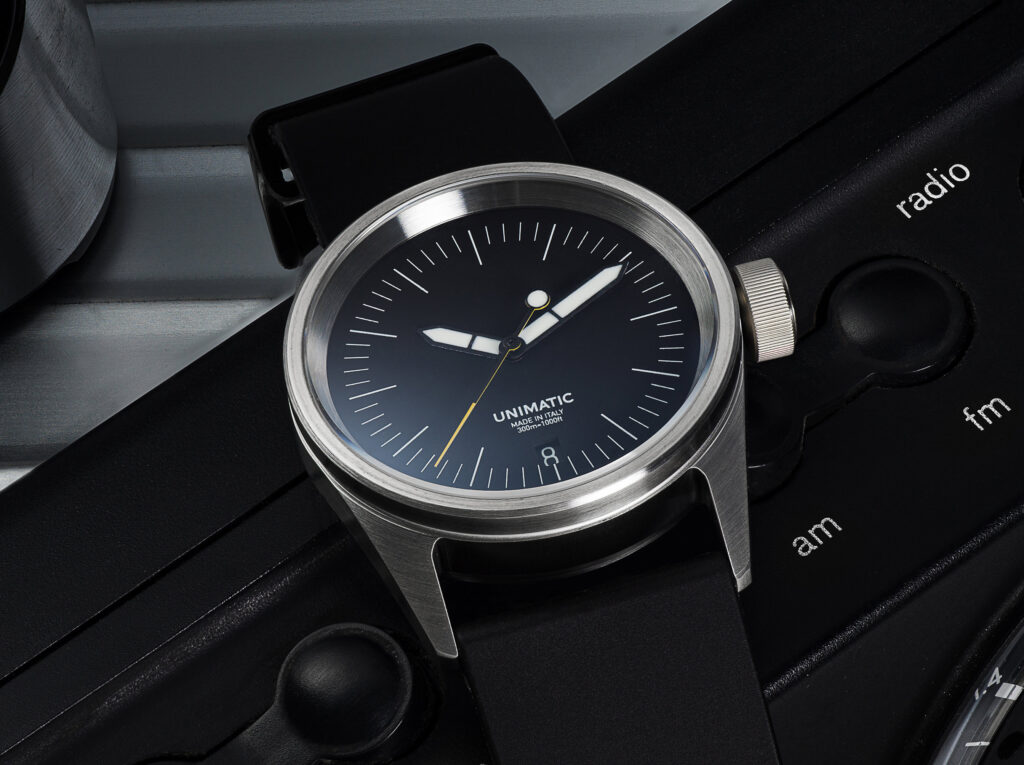Unimatic

Video
Three Watches That You Can Wear and Not Get Robbed | Summer Edition!
Aug 12, 2024

Video
Three Watches That You Can Wear and Not Get Robbed | Summer Edition!

News
Unimatic’s New Collection Introduces Its Smallest Watch Ever
Dec 8, 2023

News
Unimatic’s New Collection Introduces Its Smallest Watch Ever

News
Unimatic × Revolution U1 Milsub ‘Blue’
Aug 31, 2023

News
Unimatic × Revolution U1 Milsub ‘Blue’

Video
Unimatic × Revolution U1 Milsub “Blue” | Revo Talks
Aug 31, 2023

Video
Unimatic × Revolution U1 Milsub “Blue” | Revo Talks

Limited Edition
The All-White Stealth Unimatic x Revolution & The Rake Modello Uno GMT “Arctic Fox”
Dec 28, 2022

Limited Edition
The All-White Stealth Unimatic x Revolution & The Rake Modello Uno GMT “Arctic Fox”

Limited Edition
Up Close With the Unimatic x Revolution & The Rake Modello Uno GMT “Arctic Fox”
Dec 28, 2022

Limited Edition
Up Close With the Unimatic x Revolution & The Rake Modello Uno GMT “Arctic Fox”

Limited Edition
Unimatic × Revolution & The Rake Modello Uno GMT ‘Arctic Fox’
Dec 27, 2022

Limited Edition
Unimatic × Revolution & The Rake Modello Uno GMT ‘Arctic Fox’

Video
Seven Watches That You Can Wear This Christmas and Not Get Robbed
Dec 25, 2022

Video
Seven Watches That You Can Wear This Christmas and Not Get Robbed
You may also like

Editorial
Citizen Unveils Series8 880 GMT & 890 Limited Edition Models Inspired by Japan’s Cityscape Aesthetic

Editorial
Citizen Unveils Series8 880 GMT & 890 Limited Edition Models Inspired by Japan’s Cityscape Aesthetic

News
Audemars Piguet Concludes RD Series With Royal Oak “Jumbo” Extra-Thin Flying Tourbillon Chronograph RD#5

News
Audemars Piguet Concludes RD Series With Royal Oak “Jumbo” Extra-Thin Flying Tourbillon Chronograph RD#5

News
Schwarz Etienne Returns to Simplicity with 1902 Petite Seconde

News
Schwarz Etienne Returns to Simplicity with 1902 Petite Seconde
Shop Watches

Bvlgari
Bvlgari Octo Finissimo XX Anniversario
USD$21,300.00

Armin Strom
Armin Strom × Revolution Dual Time GMT Resonance “Tremblage”
USD$124,850.00

Celadon Haute Horlogerie
Celadon Cloisonné Enamel Imperial Four Nobles Box Set
USD$43,250.00

Celadon Haute Horlogerie
Celadon Cloisonné Enamel Imperial Four Nobles ‘Winter / Plum Blossom (梅)’
USD$10,850.00



